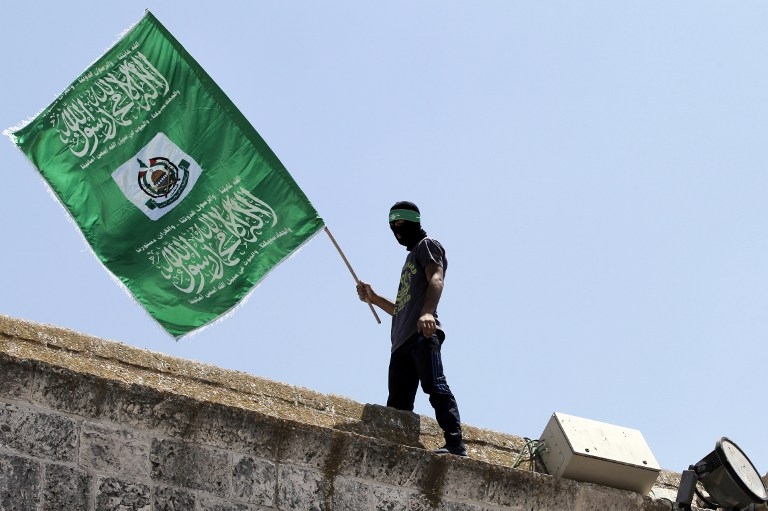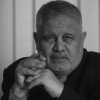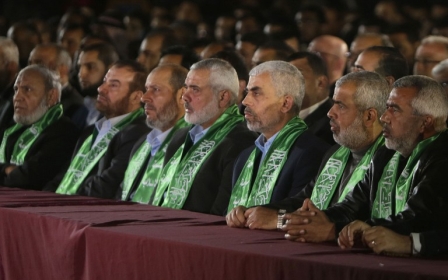If the international community is willing, Hamas' declaration can mark a turning point

Three years ago, I wrote an opinion piece for The Guardian in which I sought to correct the inaccurate, though prevalent, perception of Hamas as a movement whose resistance against Israel is driven by religion, in general, and a hatred of Judaism, in particular.
There has been an active unwillingness to hear the repeated efforts of senior members of Hamas to clarify the movement’s position towards Israel and the conflict
“Hamas draws inspiration from faith; yet religion has little to do with our struggle," I wrote at the time. I attempted to explain the journey and evolution that Hamas has undergone since its foundation it the 1980s.
Unfortunately, to date there is little evidence that this message has yet been universally understood amongst the international community. Rather, it seems that at times there has been an active unwillingness, and especially amongst Western societies, to hear the repeated efforts of senior members of Hamas to clarify the movement’s position regarding Israel and the conflict.
Despite this failure to acknowledge earlier efforts to explain its motives, Hamas has released a document this week attempting again to convey the movement’s current thinking on several key issues.
A struggle against occupation
The document makes it clear that Hamas differentiates between Judaism, a religion towards which there is no hostility and whose adherents should be respected, and the current occupation of Palestinian land by Israel – against which there is a legal and moral right to resist.
Put simply, the struggle is not against Jews but against the occupation and Israeli rogue state, whose government persistently pursues policies aimed at humiliating and depriving the Palestinians of their basic rights of independence and self governance.
Although the Palestinian people can never be forced to give up the dream of returning to their ancestral homelands, this new document reflects political realities that we face in the present day.
► ANALYSIS: Hamas's drive for legitimacy hits brick wall of Palestinian opinion
In line with the position of other Palestinian national movements, Hamas has expressed a willingness to accept a Palestinian state along 1967 borders, provided that the Palestinian people are free to live in dignity, security and with recognition of their right to sovereignty, self-determination and complete independence of Israel.
Years of debate
Some may be sceptical of these claims, arguing that it is at best a tactical shift that masks the “real” nature of Hamas which is best reflected in the Charter of 1988. But such arguments are fundamentally flawed.
Hamas' declaration is all the more remarkable when the devastation and loss of thousands of Palestinians in the three wars since 2008 is taken into account
As I have written previously, the 1988 charter was a product of the circumstances that prevailed at the time and should be understood as an expression of the deep anger, frustration and hopelessness that stems from the continued illegal occupation that laid at the heart of the first Intifada.
In contrast, this new document is the product of years of thinking and debate, among both Hamas' leadership and the rank and file of the movement. Indeed, it would have been impossible for the leadership to make such a public declaration without broad acceptance or it would have risked alienating its own base.
Hamas' declaration is all the more remarkable when the devastation and loss of thousands of Palestinians in the three wars since 2008, along with the daily costs of the siege of Gaza, is taken into account. That Hamas is still pressing ahead with this decision despite this recent history is a reflection of the deep commitment to the values and principles contained within the document.
If, on the other hand, this gesture is rejected like previous ones, and people continue to wrongly associate Hamas with an extremism that seeks regional domination and the destruction of those who do not share our Islamic beliefs, it can only undermine the efforts of the movement to engage in a meaningful dialogue and risk the continuation of the conflict that has marred life in the region for far too long.
- Dr Ahmed Yousef is a senior political adviser to former Prime Minister Ismail Haniyeh, former deputy of the Palestinian Ministry of Foreign Affairs, and the head of the House of Wisdom Institute.
The views expressed in this article belong to the author and do not necessarily reflect the editorial policy of Middle East Eye.
Photo: In July 2015, a Palestinian man waves Hamas' flag during a demonstration outside the Dome of the Rock at the al-Aqsa Mosque compound in Jerusalem (AFP)
New MEE newsletter: Jerusalem Dispatch
Sign up to get the latest insights and analysis on Israel-Palestine, alongside Turkey Unpacked and other MEE newsletters
Middle East Eye delivers independent and unrivalled coverage and analysis of the Middle East, North Africa and beyond. To learn more about republishing this content and the associated fees, please fill out this form. More about MEE can be found here.






